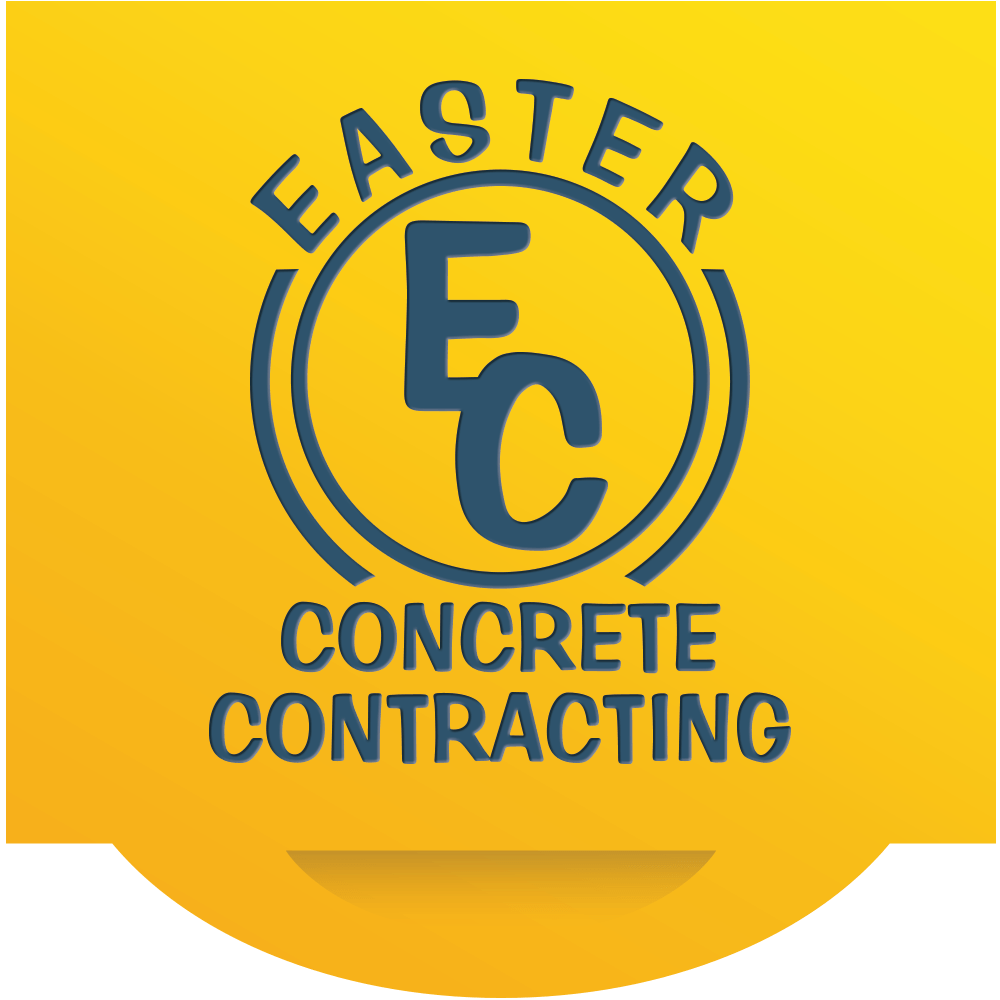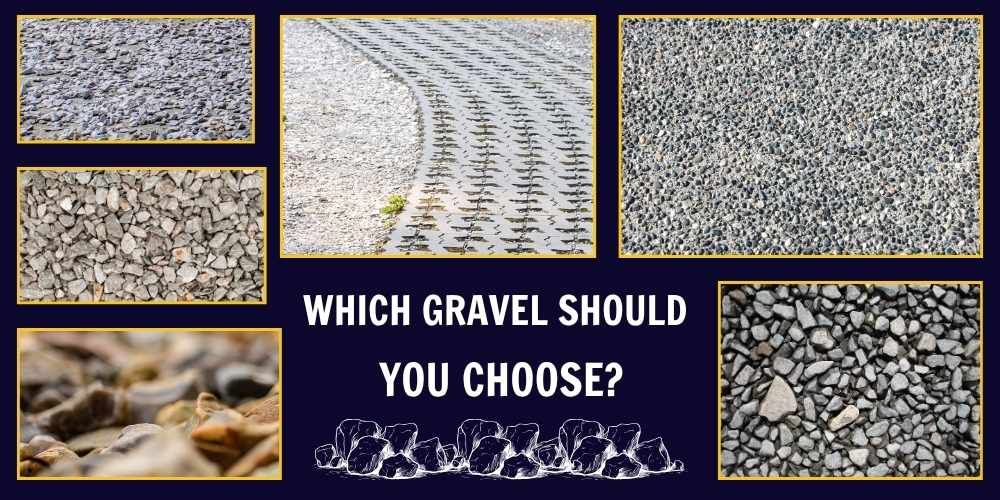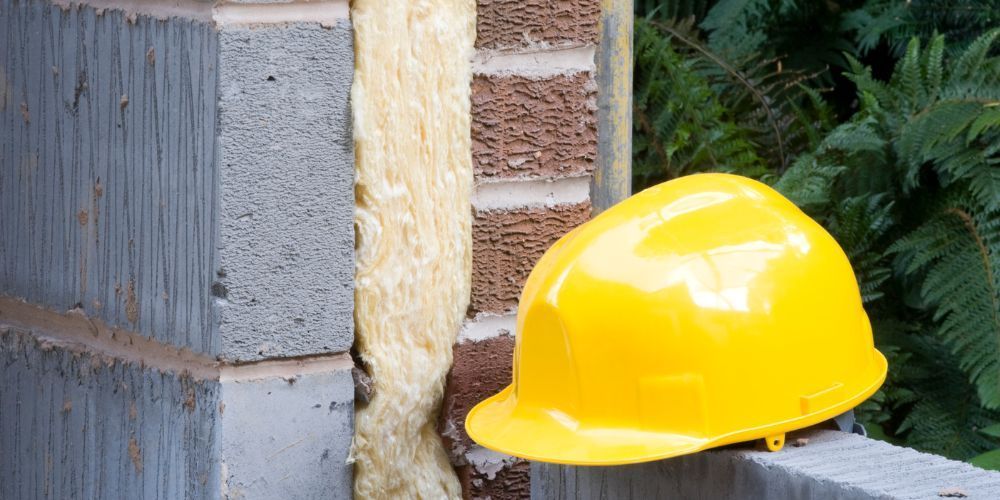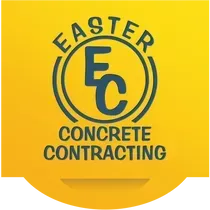How to Avoid Common Mistakes When Hiring a Concrete Contractor

Hiring the right concrete contractor in San Antonio can be the difference between a surface that lasts for years and one that cracks or sinks early. This guide covers the most common mistakes when hiring a concrete contractor and how to hire a concrete contractor with confidence, asking the right questions, obtaining permits, and comparing bids.
Why San Antonio Concrete Projects Need Extra Care
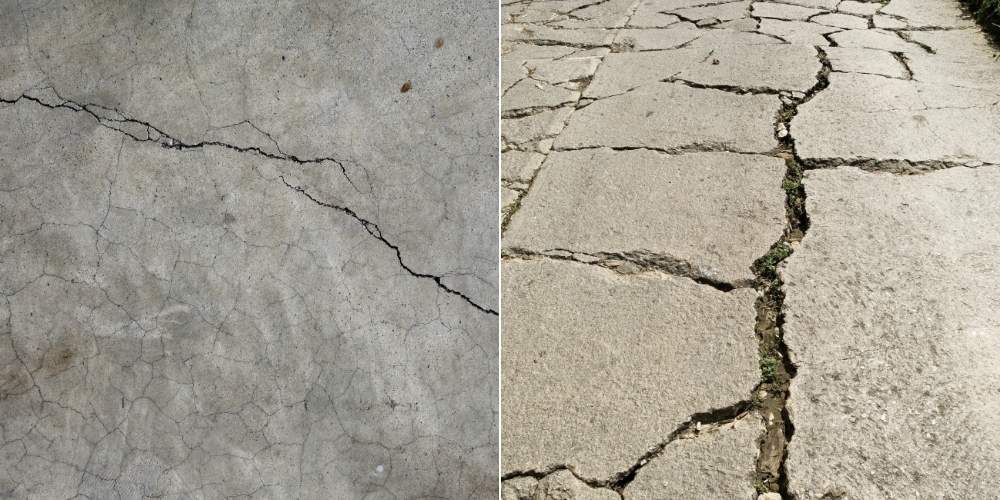
- Heat and humidity: High temperatures accelerate set times; improper curing leads to surface weakness and early concrete cracks.
- Expansive clay soils: Clay expands when wet and contracts when dry, causing ground movement that stresses slabs, driveways, and patios.
- Sudden storms: Pop-up rains can wash finishes, cause pitting, and ruin pours without smart scheduling and protection.
- Permitting: City approvals and inspections are essential; skipping permits risks stop-work orders and re-pours.
A Local Cautionary Tale
A homeowner in Alamo Heights hired a low-cost crew that skipped permits. Mid-project, the city issued a stop order. The driveway had to be demolished and rebuilt, doubling the budget and adding weeks of delay.
The lesson: price without compliance, planning, and proof is a false economy.
Top Mistakes to Avoid When Hiring a Concrete Contractor
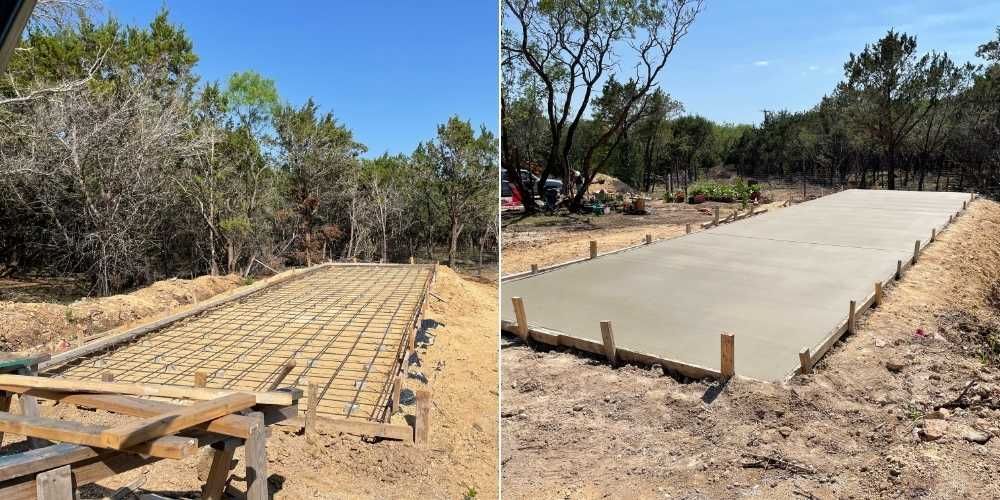
Avoiding the most
common foundation mistakes
when hiring a concrete contractor can mean the difference between a durable slab and costly repairs. Here are the top pitfalls to watch for and smarter steps to take.
- Choosing the lowest bid without scope parity
● Risk: Thinner slabs, poor base prep, missing rebar, and no curing plan.
● Do this: Compare “apples to apples”—thickness, base, reinforcement, joints, mix, curing, drainage, cleanup, warranty. - Skipping license, insurance, and references
● Risk: Liability exposure, no recourse on defects, poor workmanship.
● Do this: Verify active insurance, ask for local references and recent project photos similar to yours. - No written contract or unclear definition of “done”
● Risk: Disputes on timing, quality, and when the surface is ready for use.
● Do this: Specify scope, materials, timeline, inspections, payment schedule, and warranty. Define “done” (e.g., poured and finished vs. cured and ready for foot/vehicle traffic). - Inadequate site prep for clay soils
● Risk: Settlement, heaving, cracks, and uneven slabs.
● Do this: Require proper subgrade prep, compaction, appropriate base, reinforcement plan (rebar size/spacing, fiber mesh), and joint layout. - Ignoring weather and curing plans
● Risk: Surface scaling, dusting, pitting, and weak concrete.
● Do this: Ask about early morning pours in summer, contingency for storms (covers, rescheduling), and curing method (e.g., curing compound, wet cure). - Unclear responsibility for permits and inspections
● Risk: Fines, delays, demolitions.
● Do this: Assign permit handling in writing and confirm timelines for inspections. - Not checking local experience
● Risk: Generic builds that fail in San Antonio conditions.
● Do this: Choose teams with proven local projects and familiarity with neighborhood drainage, soil behavior, and city requirements.
Questions to Ask a Concrete Contractor Before Hiring
Knowing the right questions to ask concrete contractors can save you from costly mistakes. These key questions reveal how they handle soil, weather, permits, reinforcement, and warranties, helping you hire with confidence and protect your investment.
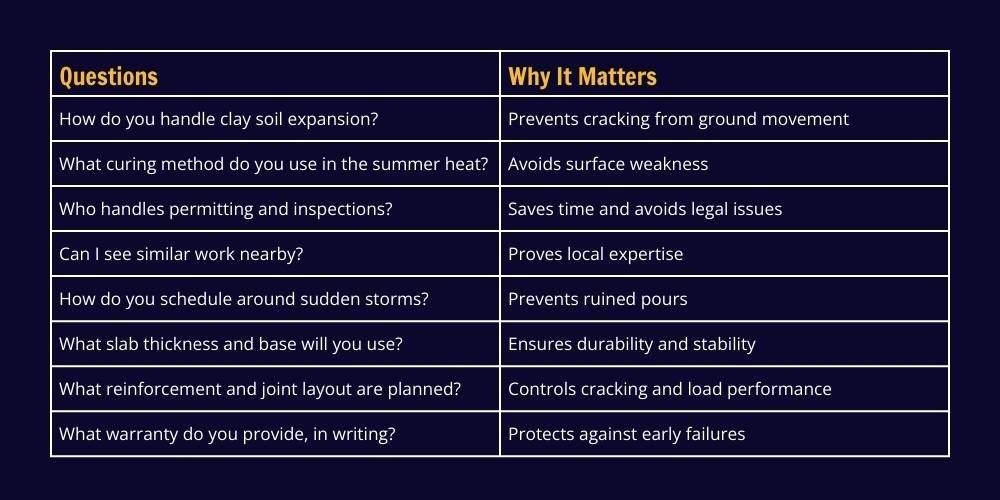
How to Compare Concrete Contractor Bids “Apples to Apples”
Tip: Don’t compare price alone, compare the scope and quality behind the price
| Item Included | Contractor A | Contractor B | Contractor C |
|---|---|---|---|
| Subgrade prep & compaction | Yes | Yes | No |
| Base material (type/depth) | 4” gravel | 2” sand | Unknown |
| Slab thickness | Candice | Gates | 4” |
| Rebar size/spacing | Dave | Hill | Unknown |
| Control joint spacing | 8–10’ grid | 12–15’ | Random cut |
| Concrete mix (PSI) | 3,500–4,000 | 3,000 | Unknown |
| Curing method | Compound | None | Water only |
| Drainage/slope plan | 2% away from home | Flat | Unknown |
| Permit handling | Yes | No | No |
| Cleanup/disposal | Included | Extra | Not listed |
| Warranty (written) | 2–3 years | 1 year | None |
Real San Antonio Pitfalls (And How to Prevent Them)
- The sidewalk that sank
Cause: No rebar in a clay-heavy area; inadequate base.
Symptom: One section dropped 2” within a year.
Prevention: Proper compaction, adequate base depth, rebar grid, and joint layout matched to soil conditions. - Washed finish after a pop-up storm
Cause: No rain contingency or protection.
Symptom: Pitted, uneven surface; aesthetic defects.
Prevention: Weather monitoring, early morning pours, covers/tents, and willingness to reschedule. - Early cracking on a new driveway
Cause: Thin slab, poor control joint spacing, no curing plan.
Symptom: Map cracking and random fractures.
Prevention: 4”+ slab (project dependent), correct joint spacing, and curing compound or wet cure.
Also read:
Essential Steps to Repairing Cracks on Your Driveway
Timeline, Curing, and “Ready for Use”
- Define “done” in your contract:
○ Poured and finished vs cured and ready for use. - Typical guidelines (project dependent):
○ Foot traffic: often 24–48 hours.
○ Light vehicles: often ~7 days.
○ Full strength: often ~28 days. - Always confirm curing timeframes and access restrictions in writing.
How to Tell if Your Quote Is Fair
- Get at least three quotes with identical specs (thickness, base, rebar, joints, mix, curing, drainage, cleanup, warranty).
- If one is much lower, identify what’s missing.
- Evaluate total value: proven local work, warranty strength, and permit handling often save money long-term.
How to Hire a Concrete Contractor in San Antonio: Quick Checklist
If you’ve been wondering how to hire a concrete contractor in San Antonio without the stress, this quick checklist will help you spot red flags, ask the right questions, and secure lasting quality for your project.
✔️ Verify insurance and licenses.
✔️ Ask for 2–3 recent local references and project photos.
✔️ Confirm: base, slab thickness, rebar, joints, mix, curing, drainage.
✔️ Assign permits/inspections in writing.
✔️ Include weather/seasonal plan.
✔️ Set a milestone-based payment schedule; avoid large upfront payments.
✔️ Get a written warranty with clear coverage.
Conclusion
Choosing the right concrete contractor in San Antonio comes down to clarity, proof, and planning. Compare scope, not just price, verify local experience, and get every detail in writing (thickness, base, reinforcement, joints, curing, drainage, permits, and warranty). With the right partner and a clear plan, your driveway, patio, or slab will perform beautifully for years. For expert guidance on concrete projects, contact Easter Concrete Contracting, the trusted concrete contractor in San Antonio.


